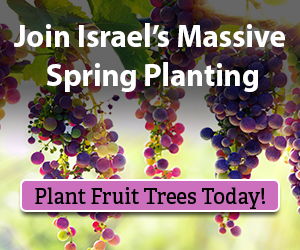

There is an area of the United States that is referred to as the Bible Belt because there is a high concentration of conservative, evangelical Protestants who play a vital role in shaping society and politics. In truth, I live in the real Bible Belt!
My home in Israel is in the area that the Bible refers to as Judea and which, in Biblical times, had a very high concentration of Jews. This is the area that the world refers to as the West Bank, as it is situated on the west bank of the Jordan River. Referring to the area with the reference point being Jordan is an attempt to diminish the Jewish historical and biblical claim to the land. Calling it by its biblical name, Judea, emphasizes the Jewish connection to the land, which began thousands of years ago. It also refutes the ridiculous claim that we are occupiers of the land. After all, how can a nation occupy its own land?
With that said, let’s go on a virtual tour of a few of the neighborhoods that have been re-established in Judea just south of today’s Jerusalem.
The first is Neve Daniel. Officially, Neve Daniel was established in 1982 on a piece of land that was the Cohen farm. The Cohen farm had been purchased from local Arabs in 1935 and was transferred to the Jewish National Fund (JNF) in 1943. JNF was the steward of the lands—in charge of both purchasing and maintaining them. During Arab riots, it became too dangerous to farm, and the farm was abandoned. It was redeemed in 1967 as an outcome of the Six Day War.
When established in 1982, it took the name Neve Daniel in memory 15 Jewish fighters who were killed, along with 73 wounded, in an Arab ambush in March of 1948 just nearby. The Jewish fighters were ambushed on the road while bringing supplies—food, medicine etc.—to the local block of kibbutzim (collective farms) called Gush Etzion.
Neve Daniel today has a population of close to 3,000, consisting of native-born Israelis and immigrants from Russia, France, the United States and Canada. The Speaker of the Knesset, Yuli Edelstein, is a resident of Neve Daniel.
The community adjacent to the south of Neve Daniel is Elazar. Elazar was established in 1975 as a Moshav Shitufi (collective communal settlement) based on technology and agriculture. This original designation was changed and Elazar has become an open suburban community.
Elazar was named for Elazar the Maccabee. In 167 BCE, the Maccabees led a revolt against the Syrian-Greeks who were controlling the Land of Israel. They imposed their Hellenistic lifestyle upon the local Jewish population, which contradicted Jewish values and led to the revolt. The revolt was initiated by Matityahu the Hasmonean and his sons, the most famous being Judah the Maccabee. The name Maccabee either means hammer or is an acronym for the phrase, “Who is like you Hashem?” (from the Hebrew, of course). Elazar the Maccabee was the son of Matityahu and brother of Judah. Elazar was killed in the area when he was crushed while killing an elephant in a battle against the Syrian-Greeks.
There are about 2,000 residents today in Elazar. They are famous for their small zoo where they offer psychological services based on the latest advances in animal therapy. The community is run by volunteers, contains a large, centrally located synagogue and overlooks the Path of the Patriarchs, the ancient road that served as the main path to Jerusalem in ancient times. It is the road that the patriarchs and matriarchs would have traveled on, hence the name. There have been many archaeological discoveries along the path, including a very large mikvah (Jewish ritual bath) and Roman milestones stating the distance to Jerusalem.
These are just two of the communities that are part of the prophecy of the Jewish return to our ancient, ancestral homeland. Here we live the prophecy and see God’s miracles on a daily basis.
To be continued in the next installment.
Do You Love Israel? Make a Donation - Show Your Support!
Donate to vital charities that help protect Israeli citizens and inspire millions around the world to support Israel too!
Now more than ever, Israel needs your help to fight and win the war -- including on the battlefield of public opinion.
Antisemitism, anti-Israel bias and boycotts are out of control. Israel's enemies are inciting terror and violence against innocent Israelis and Jews around the world. Help us fight back!



